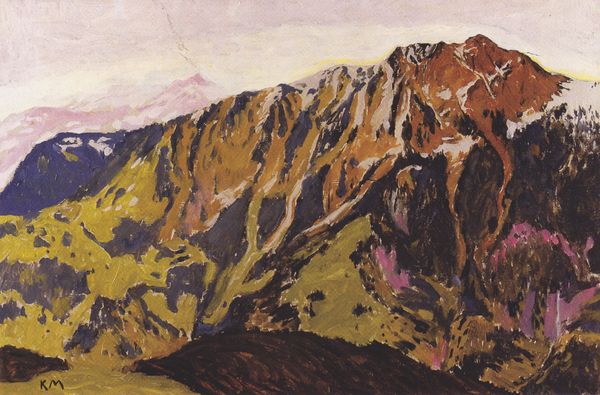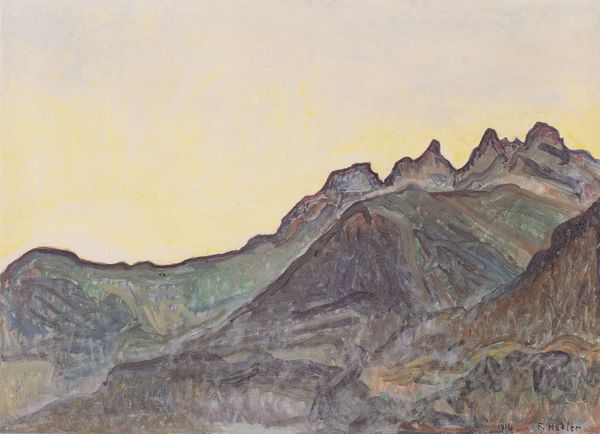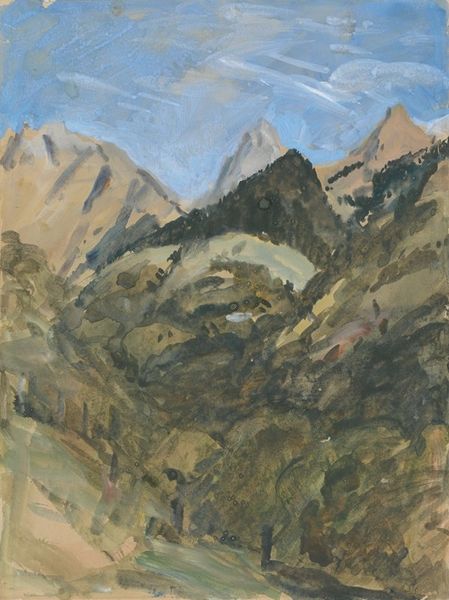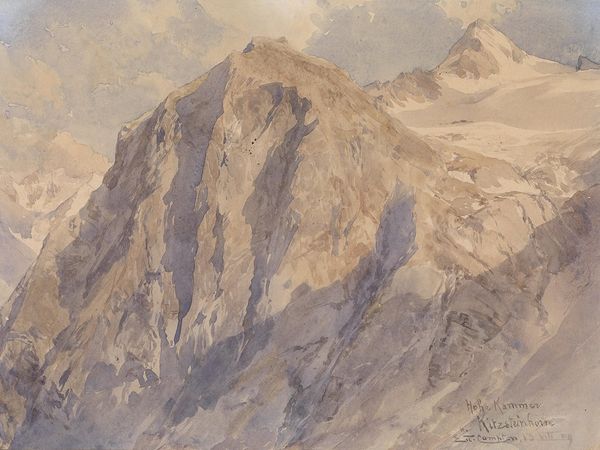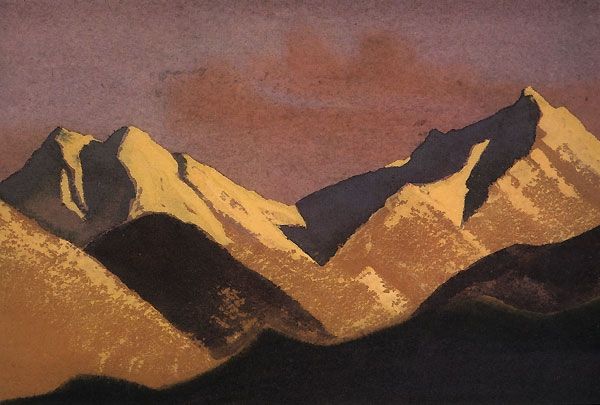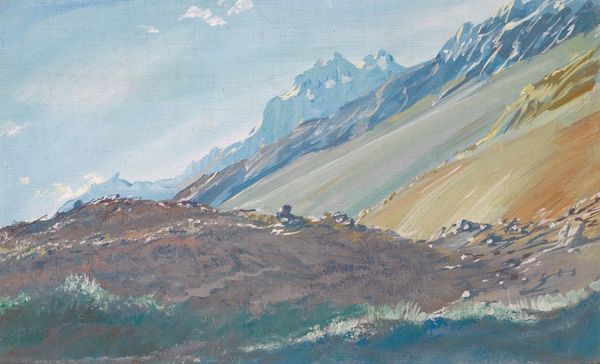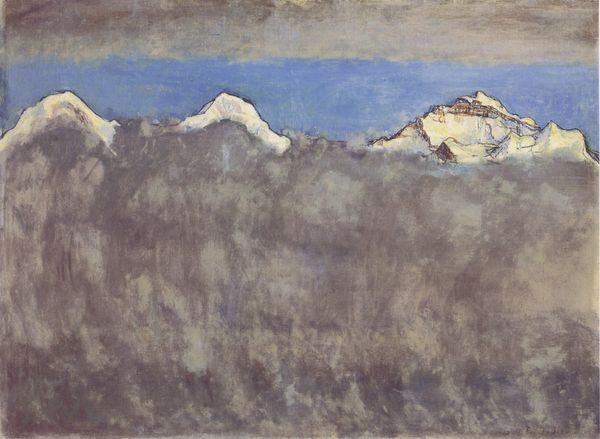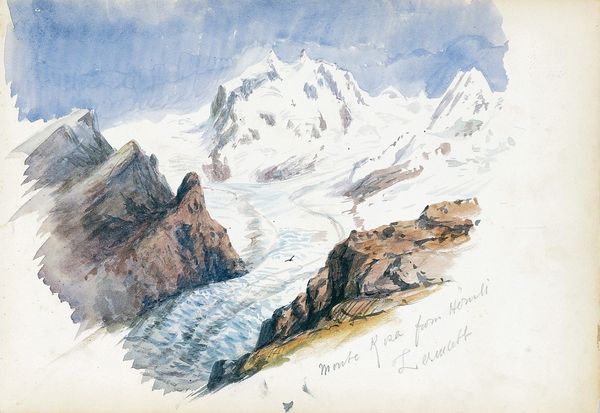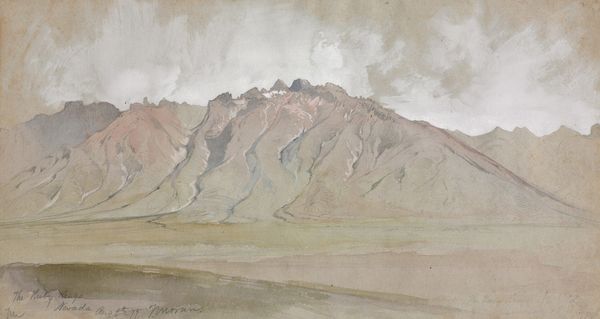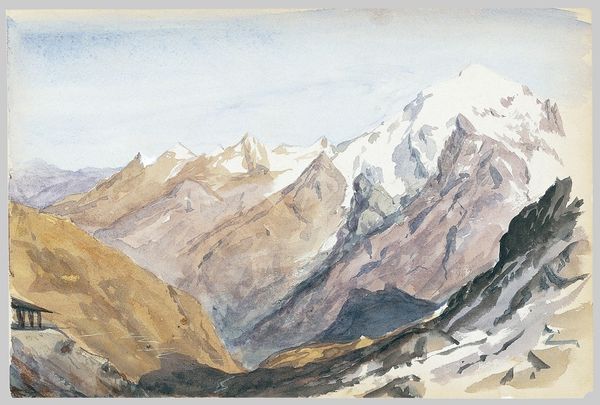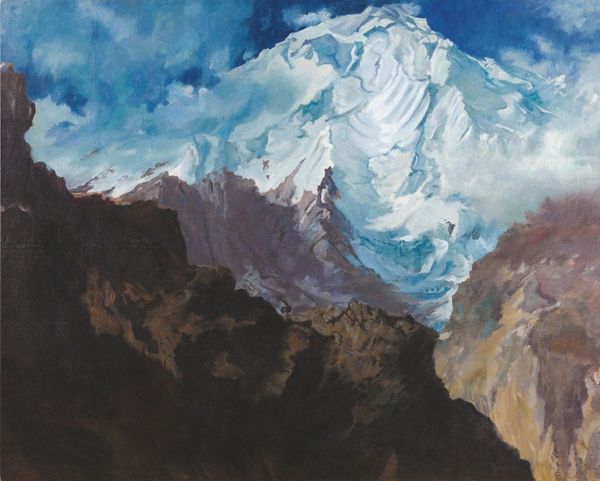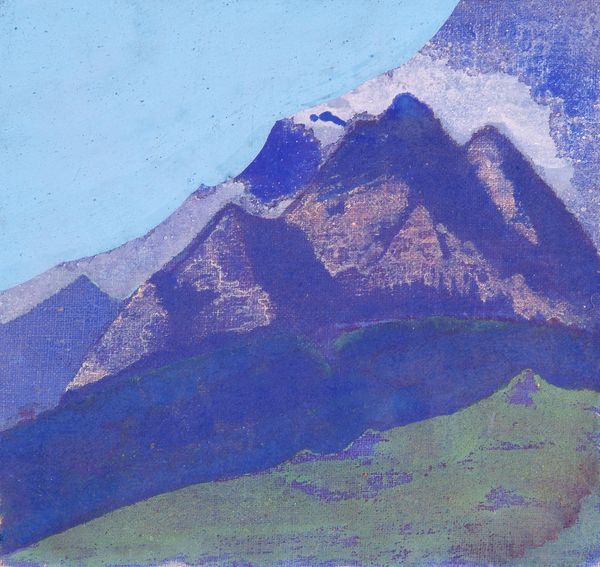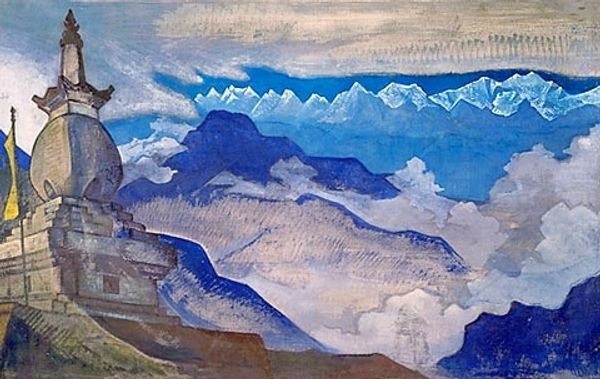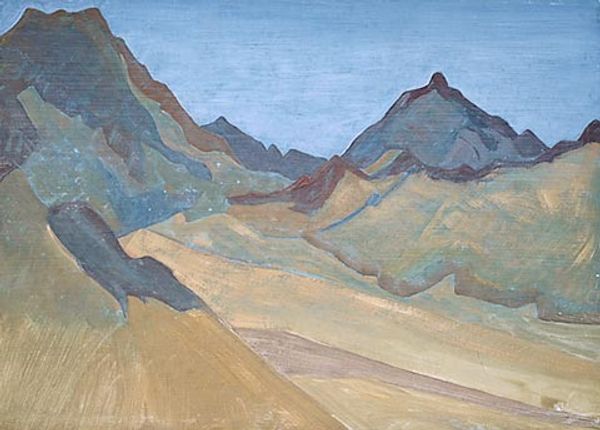
Copyright: Public domain
Editor: Here we have John Ruskin's "Rochers de Lanfon, Lake Annecy," painted in 1863 using watercolors. The muted tones give it an almost dreamlike quality. What do you see in this piece? Curator: I see Ruskin engaging directly with the material realities of the landscape. Notice the emphasis on the geological structure, almost as if he were mapping the terrain. Think about the laborious process of plein-air painting. The choice of watercolor, typically seen as a more 'feminine' medium at the time, also invites questions. What does it mean to engage with rugged, masculine landscapes using this supposedly delicate material? Editor: That's a fascinating point. It's interesting how he documents it so diligently, almost like a scientific survey, yet still conveys an emotional response to the scene. Does the industrial revolution raging at the time factor into this choice? Curator: Absolutely. Consider the context. This is a time of massive industrial expansion, resource extraction, and environmental transformation. Ruskin was deeply concerned with the impact of these changes. His detailed study and depiction of untouched natural landscapes are an act of preservation but also of resistance. He is showcasing what industrial capitalism threatens to erase. His detailed brushstrokes can be seen as labor itself. Editor: So it's not just a beautiful landscape; it's a statement about the value of labor and the environment? Curator: Precisely! And it challenges this artificial boundary between fine art and craft. The painstaking details force us to think about Ruskin's labour, and therefore all labour in service of our rampant resource extraction at the time and after. Editor: I never thought about it that way. It gives the painting so much more depth. Curator: Exactly, it's the power of understanding the conditions of production of art, even something as seemingly straightforward as a landscape painting. Editor: Thanks, I am taking so much away from your perspective. Curator: Of course, art always shows us the social construction of reality, if only we pause and reflect.
Comments
No comments
Be the first to comment and join the conversation on the ultimate creative platform.
